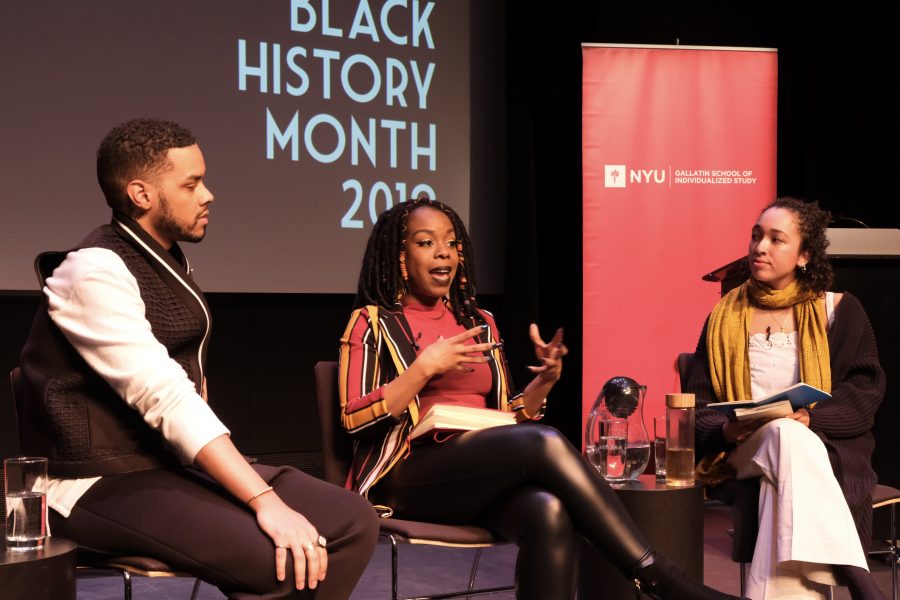The value of community-making by marginalized groups is essential to equality, according to a panel of experts and activists speaking at the Urban Intersections: Black, Queer Lives event on Wednesday.
The event, in celebration of Black History Month, was hosted at Gallatin School of Individualized Study. Rebecca Amato, associate director of the Urban Democracy Lab and organizer of the event, said that although the event did not incorporate new information, she thinks it provided an opportunity for support and acknowledgment.
“I don’t think everybody was hearing something they had never heard before, I think it was a moment of affirmation [for that community], really,” Amato said. “And for people like me who aren’t black or queer, it is a moment of having an opportunity to listen to an experience that isn’t mine.”
The public event was moderated by Ayasha Guerin, a doctoral fellow of Urban Practice at the Urban Democracy Lab. Activists Kiara St. James, Kleaver Cruz and Jewel Cadet sat on a panel to discuss the intersection of race and sexuality.
All panelists spoke about their extensive work as activists and how they used different methods to achieve their different goals of equality. For Cruz, joy as an act of resistance to systemic oppression was a way to greater justice in society. Cadet championed political art, fundraising and refusing to conform to ideas of “respectable” activists who are often boxed in and not allowed to truly be themselves. St. James, a member of the transgender community, focused on the high homicide rate among black transgender women and how mentorship and legal action can lead to societal change.
“I hope that people understand our identities of being black and being queer and how important those communities are,” Cadet said. “We do [cultivate our identities] as a way to be amongst each other and experience some sort of liberation in a world that doesn’t want us to exist.”
The event was followed up with a Q&A session in which the audience was able to share their own opinions and views. The topic most emphasized was the strengthening of communities where people feel safe and accepted by others like them.
“[I’m taking away] to be radical and to be OK with it,” audience member Cortnie Vee, 31, said. “There are times where black people just want to be as free as possible and there’s nothing wrong with that.”
The organizers and panelists hope that the event will help to inspire affirmation among black members of the LGBTQ community as well as inspire others to move from “allies”, who give superficial support to gay rights, to “champions” who take action alongside the LGBTQ community around the city.
“NYU is kind of a cultural center in the city and it kind of sets the pace of what people at least in downtown Manhattan are thinking about in a lot of ways,” Amato said. “If we don’t talk about all the experiences that people in New York are having, then we are really not taking responsibility for our role in the city.”
Email Lachlan Hyatt at [email protected].























































































































































